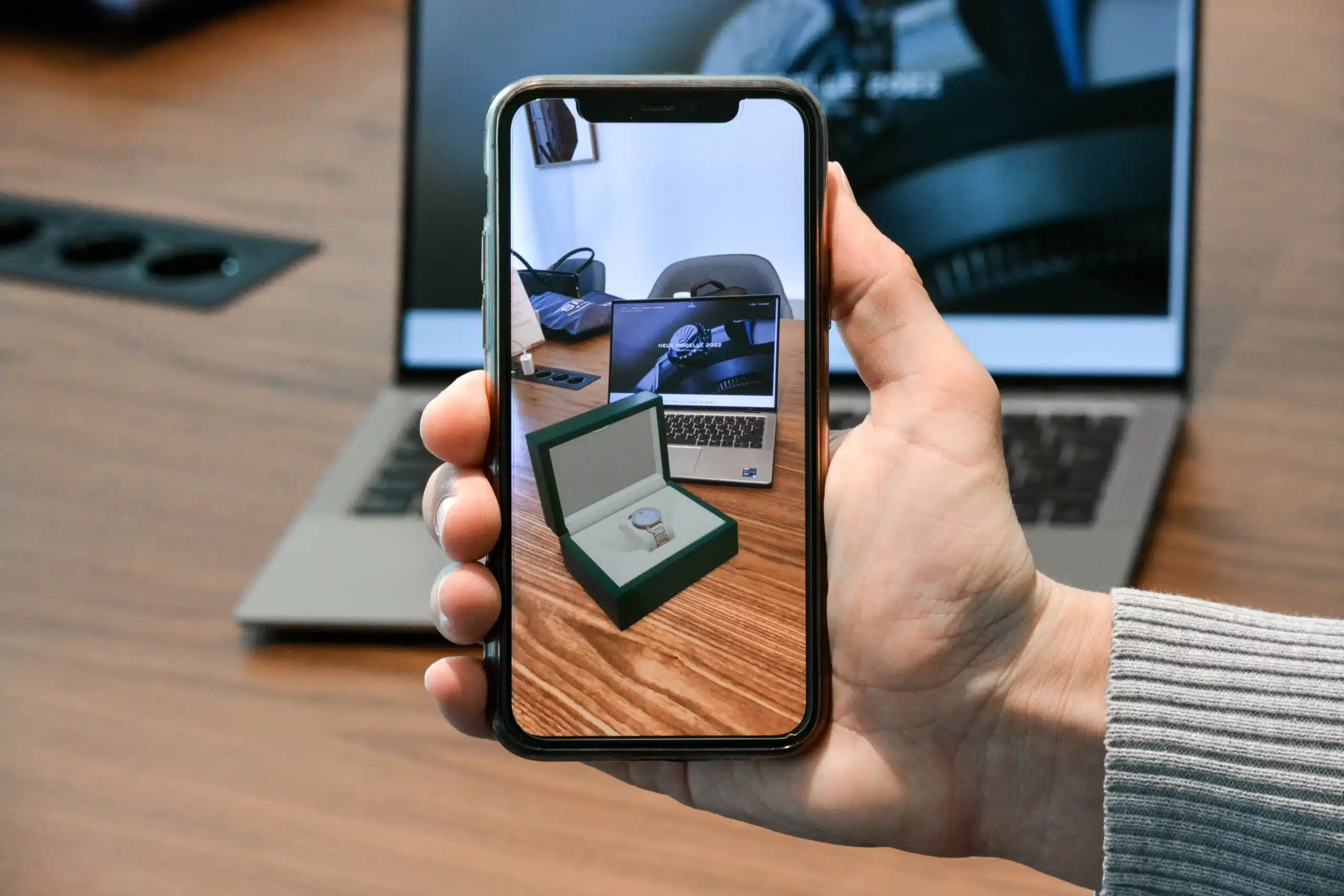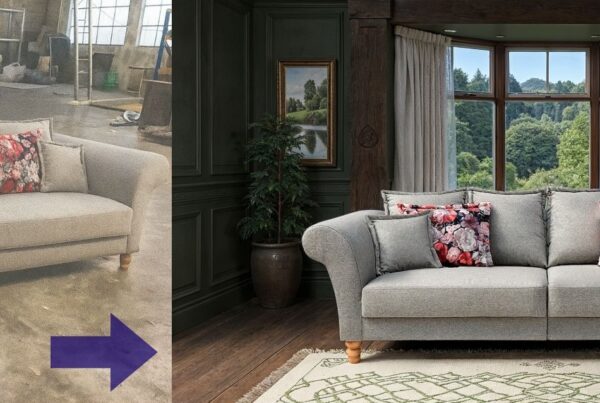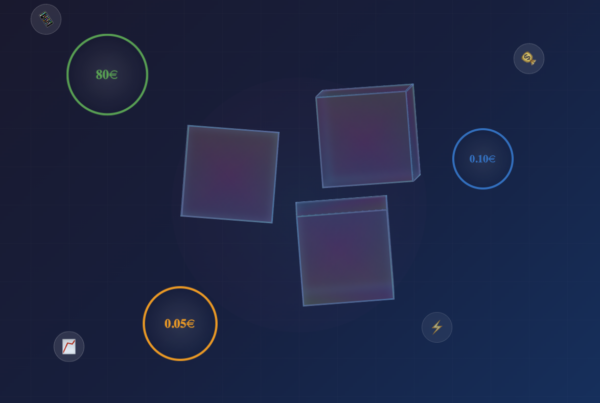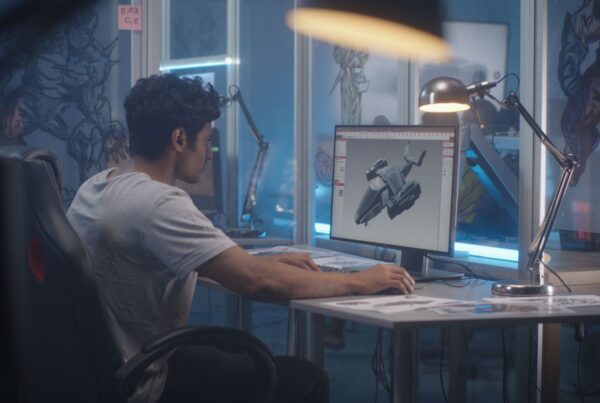Of all the emerging technologies that are changing retail, augmented reality (AR) is probably the most innovative. AR allows users to have computer-generated images interact with real-life encounters, making it useful for entertainment, marketing and education professionals without the need for equipment. Due to its broad applicability, Globe Newswire reports that the AR market is expected to grow to USD 90.8 billion (EUR 84.9) by 2028, at a CAGR of 31.5%.
Today, AR is used extensively in marketing to attract visitors to brands’ digital platforms and improve customer education through 3D simulations of products. In retail, the new applications revolve around the ability to harmonise physical reality and digital interactions. Here are some innovative examples of how AR can be used to promote physical retail, blurring the lines between reality and augmented reality.
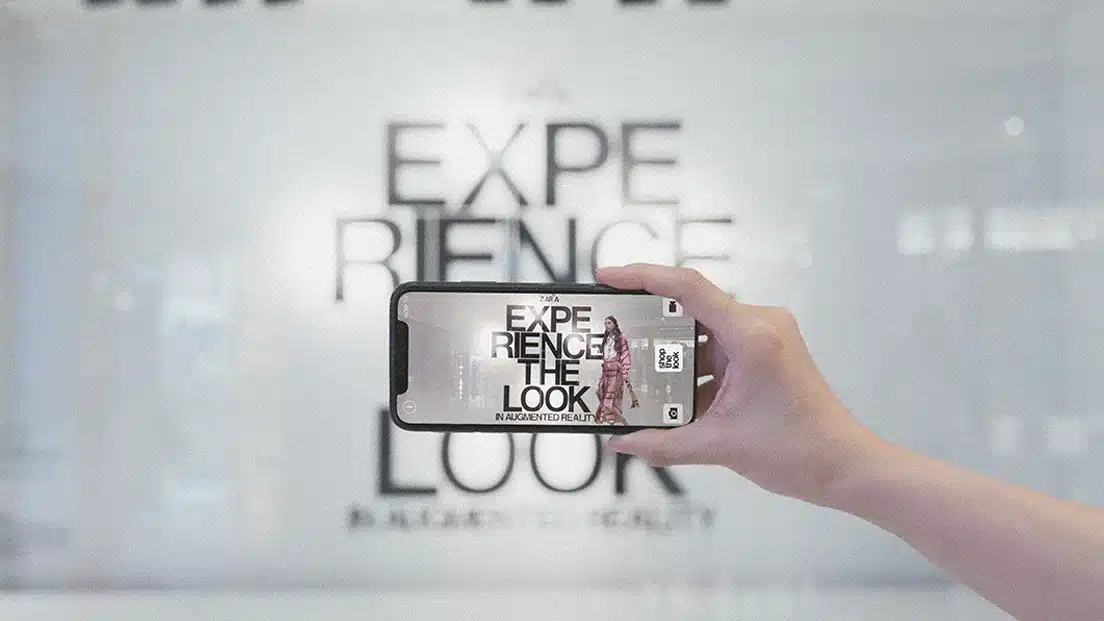
Immersive experience through AR in the physical store
AR has already been used in e-commerce to offer interactive 360-degree views of products that provide more information about design, material and functionality. This application can also be extended to in-store experiences to provide customers with better information. At the House of Innovation, Nike’s flagship store in New York, customers can find out more about the products by trying them on and checking them out digitally. Similarly, Lacoste offers AR graphic areas that can adjust shoe sizes to simulate how they would look on a customer.
Another way to improve the customer experience with AR is to attract customers with virtual tours. Reality and augmented reality seem almost inseparable. Kate Spade used this for the opening of its first stationary shop in Paris. The My Little Paris Tapage app allows customers to see unexpected images of the city and receive special gifts as soon as they arrive at the boutique. Applications like these raise the bar for the customer experience by offering personalised and unique brand encounters.
Last but not least, AR can be used to save space and room. Furniture stores, for example, can display their top 10 products in physical retail stores and show the others on request using AR, place them in the room and present them to the customer. This can save high rental costs and significantly improve customer satisfaction.
AR packaging
Marketing is crucial to a brand’s identity; one of the most important components is the customer experience. With AR packaging, brands can take their marketing strategies to the next level by offering their customers unique encounters that enhance their image.
Our article ‘Augmented Reality for Packaging‘ explains how Jack Daniel’s Whiskey and hair care brand Herbal Essences have utilised this. By scanning a Jack Daniel’s bottle, customers gain insight into the history and ethos of the company through a comprehensive virtual tour of the distillery, complete with ornate book-style diorama graphics. The packaging of Herbal Essences also leads to interactive graphics – in this case a beach landscape – which inform the customer about the origin of the recycled plastic bottles. Such experiences enable customers to feel the enthusiasm for your product long after they have purchased it. More importantly, they anchor the image of your brand in their minds by immersing them in the story behind your brand.
Improvement of SEO
Search engine optimisation (SEO) is an essential part of any company’s marketing strategy. Digital marketing agency Ayima explains that SEO strategies include performance SEO, analytics and paid or biddable media. These strategies help to measure your placement in search results, evaluate the effectiveness of your campaigns and generate leads with paid advertising. In this way, you ensure that your company’s information is easily accessible to the public and that you reach the relevant target groups.
With AR, SEO has new applications that are particularly beneficial for retailers. According to Forbes, AR can be used to provide location-specific experiences. AR is currently promoting SEO primarily through its presence on social media. The Louvre offers 360-degree virtual tours and brands such as Browns Fashion have released filters to increase engagement on their platforms. But AR can also expand the possibilities in the shops. To improve your local SEO ranking, you can provide all the information about your business with scannable codes or offer special deals to customers near your location. In addition, the ability to offer interactive AR experiences in your shop via your website can increase the overall time spent on your site and thus improve your rankings.
Summary
Modern technologies can improve your in-store retail experience and SEO. When you combine reality and augmented reality, the possibilities are limitless – you are literally spoiled for choice. The options range from 360-degree views and circular tours to virtually trying on the right shoe size or placing furniture that is currently out of stock.
If you have any further questions or require more information about AR, you can find out more here at Mazing.


